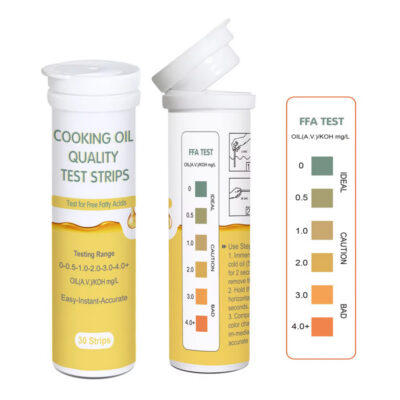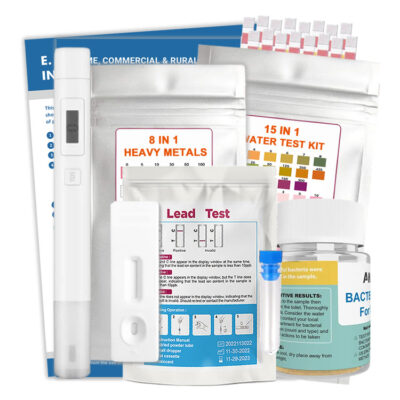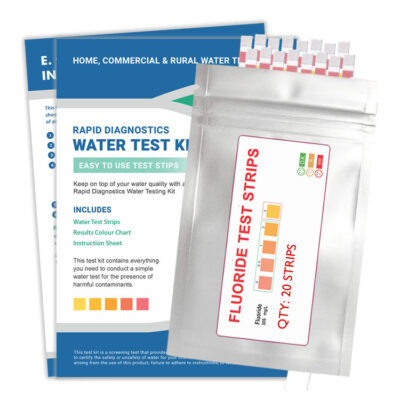Copper Test Kits provide you with the tools required to monitor copper levels in your drinking water. This helps to monitor and prevent hard to detect problems that can be harmful to your health. Our Test Kit detects copper from 0.005mg/L (safe) to 0.050 mg/L (not safe).

Copper Test Kits
Copper in Drinking Water
Copper is a reddish natural metal which is found in most sources of water. It comes from rocks, soil, sediment, air and copper pipes.
In small amounts, copper is an essential element for living things including humans to maintain good health. However, copper in large doses can cause unpleasant side effects including nausea, vomiting and stomach crams. Long term exposure to copper in drinking water can cause liver and kidney disease.
People who source their water from private sources including wells, tasks, dams and bore water are at higher risk. This is due to their water not being monitored.
Reasons for high levels of copper in water
In most countries including Australia, copper pipes are used to carry water from the mains supply to your home and into your kitchen, bathrooms and toilets. However copper plumbing left unmaintained will eventually corrode and release copper into your water. Another cause would be water left standing in copper pipes for long periods can cause a temporary increase in copper levels. This can can make your drinking water quality unsafe for consumption. In such cases copper test kits can help monitor your water. Copper can also end up in water through industrial processes including mining, farming, and factory work.
Signs of high levels of copper in drinking water
Water with high levels of copper will normally have an metallic or bitter unpleasant taste and in some cases have a slight blue or green tinge. This water may not be safe and you should test your water with a copper test kit.
Health effects of excessive copper in water?
An average size adult requires approximately 2-3mg of copper per day. Most of this is derived from food. Less than 10% of your daily requirements are absorbed from drinking water. Consumption of water contaminated with copper levels of 4.0 and 6.0 ml/L can cause vomiting, nausea, diarrhea and head aches. Long term exposure of a few months or more can cause permanent liver and kidney related problems. Both children and adults with compromised immune systems are particularly susceptible to copper toxicity. People that suffer from Wilson’s disease should monitor their water to prevent excessive copper intake.
Do water suppliers test for copper
In all states of Australia, water contamination levels are tested at the source to ensure that they meet the Australian Drinking Water Guidelines. The guidelines have two levels for copper. For appearance, taste and staining problems 1mg/L. For a safe level for health related problems 2mg/L. Although water is tested from the source, this does not take into account what happens as the water is delivered to your mains supply and through the plumbing in your house.
How can I test my copper levels
If you suspect that your water has high levels of copper, you can test you water with Copper Test Kits. You can also contact a National Association of Testing Authorities (NATA) accredited chemical laboratory. If you get your water from a private source it is your responsibility to regularly test your water and monitor contamination levels.
Copper Test Kits
Copper test kits are an effective solution for testing the level of copper in your water. Simply dip a test strip under a running tap for a few seconds. Wait for 60 seconds and compare with the colour chart on the rear of packaging. Testing your water from various locations is advised as copper levels can vary from one location to the next. Test your copper with the Copper Water Test Kit
How to reduce copper level in drinking water
The first thing to try is to turn on all taps for a few minutes. This can flush and water that has been sitting in copper pipes for extended periods. Test you water again to see if this has resolved the problem. If the test is sill high in copper, ask a plumber to inspect your plumbing for corroded pipes. Alternatively install water filtration system which can be effective at reducing copper levels from your drinking water.





